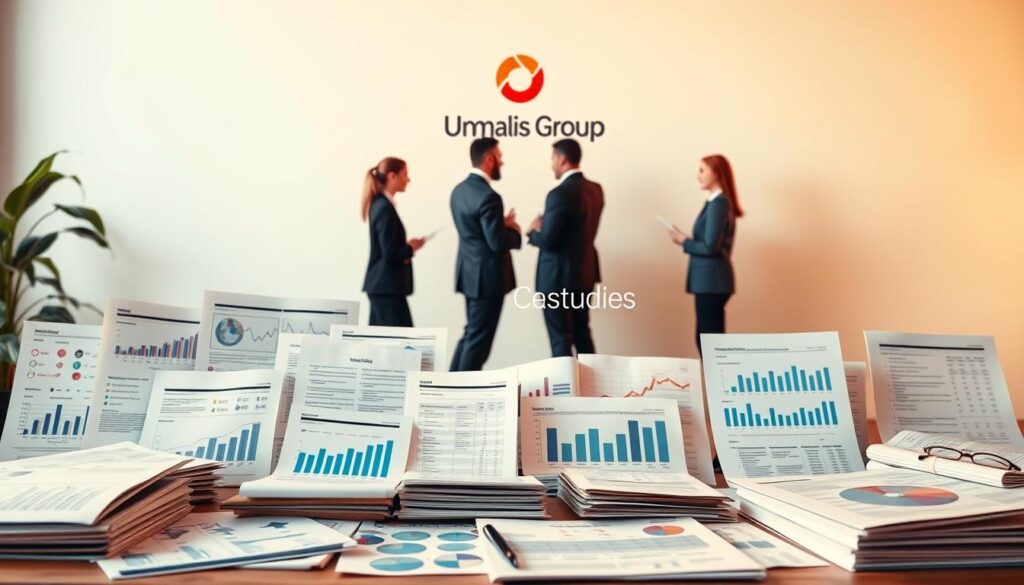Did you know 72% of engineers and geologists report facing pressure to compromise their judgment at least once in their careers? This startling figure underscores why autonomy in decision-making isn’t just ideal—it’s non-negotiable.
At its core, professional independence means prioritizing objectivity over external influence. For example, legal definitions like “Professional Geologist” require adherence to ethical standards that protect public safety. Similarly, engineers must avoid conflicts that could sway their technical assessments.
Why does this matter? Without safeguards, expertise becomes vulnerable to shortcuts or biased agendas. Clear protocols ensure decisions align with integrity, not outside interests. This builds trust with clients and preserves the reputation of entire fields.
Think of it as a shield: independence lets you focus on what truly matters—delivering unbiased results. Whether managing projects or advising clients, your ability to act freely strengthens both your work and the profession’s credibility.
Key Takeaways
- Unbiased judgment protects client interests and public safety.
- Legal frameworks define standards for ethical practice across fields like engineering.
- Clear protocols minimize external pressures on decision-making.
- Trust grows when expertise remains free from conflicts of interest.
- Autonomy strengthens both individual reputations and industry credibility.
Overview of Professional Independence in Today’s Professional Landscape
In an era where trust defines success, autonomy remains central to ethical practice. Professional independence refers to the freedom to make decisions based solely on expertise, free from external pressures. This principle spans industries, ensuring work aligns with technical standards rather than competing interests.
Definition and Scope of the Rule
At its foundation, this concept combines confidentiality, impartiality, and adherence to legal obligations. For instance, EU directives require engineers to disclose potential conflicts before project approvals. Similarly, French labor laws mandate time-bound protocols for handling sensitive client data. These rules create guardrails, ensuring decisions prioritize public safety over shortcuts.
The Need for Objectivity in Various Professions
In medicine, doctors rely on unbiased diagnoses—even when pressured by insurers. Lawyers must avoid personal interests influencing case strategies. A 2022 study found that 68% of ethical violations stem from unresolved conflicts between client demands and professional standards. Clear guidelines, like anonymizing patient records or rotating project teams, help maintain neutrality.
Such frameworks don’t just protect clients—they shield practitioners from liability. By embedding objectivity into daily workflows, professionals uphold their obligation to serve with integrity. Next, we’ll explore how legal texts formalize these expectations across Europe.
Professional Independence: Rules, Regulations, and Legal Obligations

Balancing expertise with accountability requires robust systems. Legal frameworks act as both shields and guides, ensuring decisions remain rooted in facts rather than external agendas.
Legal Frameworks and Codes of Conduct
France’s Statistics Act (Law 51-711) mandates strict protocols for data collection. For example, Article 2 prohibits altering results to suit political or commercial interests. Similarly, the Economy Modernisation Act requires transparent recruitment processes for statistical roles to prevent bias.
EU Regulation 223/2009 reinforces these standards. It grants authorities like INSEE autonomy to publish findings without government interference. As one EU official noted: « Data integrity isn’t negotiable—it’s the bedrock of public trust. »
Key Regulatory Texts from France and the EU
Three pillars define compliance:
- Transparency: All methodologies must be publicly accessible under Article 7 of Regulation 223/2009.
- Accountability: Authorities must document decision-making trails to audit for conflicts.
- Enforcement: Penalties for violations range from fines to license revocation.
These rules minimize interference while upholding ethical obligations. For instance, anonymizing sensitive data prevents third-party pressure during analysis. By embedding legal safeguards into daily work, professionals protect both their credibility and public welfare.
Best Practices for Maintaining Professional Independence
A 2023 survey revealed that 61% of medical practitioners faced situations where confidentiality protocols prevented biased outcomes. Such scenarios highlight why structured approaches matter. Let’s explore actionable strategies to preserve autonomy while delivering exceptional work.
Adhering to Ethical Guidelines and Confidentiality
Start by embedding ethical codes into daily routines. For example, doctors anonymize patient records during research to eliminate bias. Lawyers use screened teams when handling sensitive cases. The AMA Code of Ethics states: « Confidentiality isn’t optional—it’s the foundation of trust. »
Strategies for Conflict Avoidance and Impartiality
Create clear boundaries early. Engineers often sign conflict disclosure forms before project bids. Financial advisors document client interactions to prove transparency. One French engineering firm reduced disputes by 40% after implementing third-party audit reviews for all design approvals.
Ongoing Education and Professional Development
Staying updated sharpens judgment. Attend workshops on emerging industry laws or ethics certifications. For instance, EU data protection courses help analysts navigate privacy rules. Many French engineering associations now require annual training hours focused on decision-making frameworks.
Simple systems yield lasting results. Rotate team roles quarterly to prevent favoritism. Use encrypted tools for sensitive communications. By combining vigilance with learning, you protect both your reputation and the profession’s standards.
Real-World Examples and Applications in Diverse Fields

How do professionals navigate ethical dilemmas under pressure? Let’s examine scenarios where autonomy directly impacts outcomes.
Case Studies from Medicine, Law, and Engineering
A French pharmaceutical researcher once refused to alter trial data despite corporate demands. Her adherence to rules uncovered critical side effects, leading to safer patient protocols. Similarly, a Parisian law firm avoided representing competing tech clients by implementing strict conflict screening systems.
In civil engineering, a Lyon-based team rejected shortcuts during bridge inspections. Their rigorous practice prevented potential structural failures. These examples show how prioritizing technical standards over interests protects public welfare.
Impact of External Pressure and How to Mitigate It
Medical journals report cases where insurers pressured doctors to limit diagnostic testing. Such interference risks misdiagnoses. To counter this, many EU hospitals now use anonymized case reviews to ensure objectivity.
Key mitigation strategies include:
- Mandatory third-party audits for engineering projects
- Blinded data analysis in clinical research
- Rotation of legal teams handling high-stakes cases
One Toulouse engineering firm reduced pressure by publishing all safety reports publicly. Transparency became their shield against external agendas. As these case studies prove, structured safeguards turn ethical obligation into actionable defense.
Conclusion
Trust forms the backbone of every ethical profession. Throughout this article, we’ve seen how legal frameworks and clear practices—like engineers rejecting shortcuts or medical teams anonymizing data—protect unbiased outcomes. These systems aren’t just rules; they’re shields against external pressures that could compromise integrity.
Your obligation is to embed these principles into daily work. Stay updated on evolving regulations through workshops or certifications. Implement protocols like third-party reviews for high-stakes projects. The case studies highlighted prove that structured safeguards turn ethical standards into actionable results.
In a landscape where client interests and government expectations often collide, your commitment matters. Will you prioritize transparency in every decision? By aligning actions with proven examples, you strengthen both your reputation and the trust your field deserves.
Final advice: Start today—review workflows, seek peer feedback, and let objectivity guide your next move. Small actions build lasting credibility.
FAQ
How does confidentiality strengthen client relationships?
Strict confidentiality builds trust by ensuring sensitive information stays protected. Lawyers at firms like Baker McKenzie and doctors at Mayo Clinic follow HIPAA/GDPR standards to maintain ethical barriers between personal interests and client needs.
What happens if external pressure compromises my judgment?
The AICPA Code of Conduct requires accountants to disclose conflicts immediately. Engineers at Boeing use third-party audits to neutralize corporate influence, while platforms like Upwork provide mediation tools for freelancers facing client demands.
Are there tools to help avoid conflicts of interest?
Yes. LegalZoom offers conflict-check software for small firms, and the EU’s EN ISO 17025 standard guides labs in implementing impartiality protocols. Many consultants use Monday.com workflows to flag overlapping client engagements automatically.
Do EU regulations differ from French laws on integrity?
France’s Sapin II Law aligns with the EU Whistleblowing Directive but adds stricter penalties. Professionals working cross-border (like Decathlon’s supply chain managers) combine both frameworks, often using compliance platforms like NAVEX Global for real-time updates.
How often should I update my conflict mitigation strategies?
IBM requires annual ethics training, while Deloitte mandates quarterly reviews. Freelancers on Fiverr Pro use Coursera’s “Ethics in Tech” courses to stay current. Industry shifts (like GDPR updates) should trigger immediate protocol reviews.
Can I consult competitors while maintaining impartiality?
McKinsey’s firewall policies show it’s possible with proper disclosure. The key is transparency – document all interactions and use separate teams. Pharma researchers often partner with independent IRBs like WCG to validate studies without bias.

